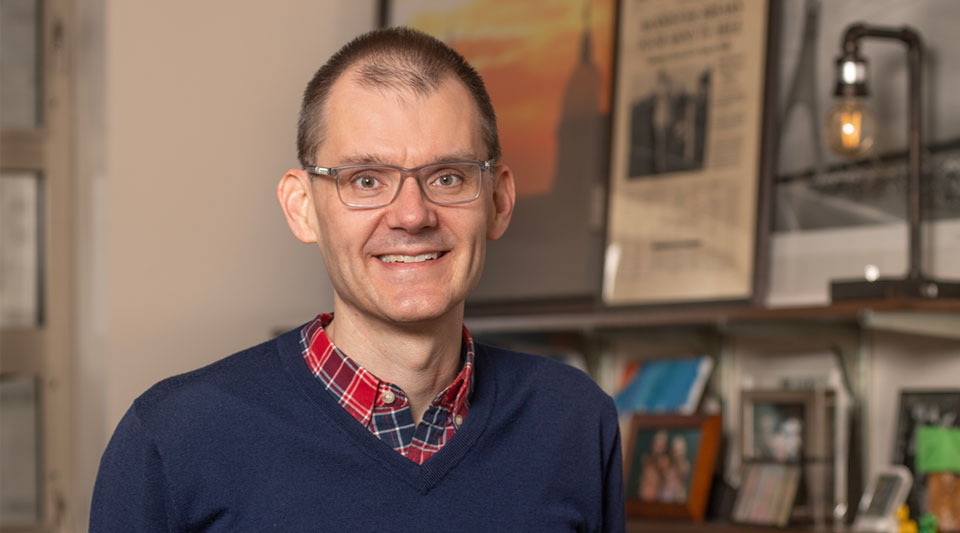Rapid advances in computing require teachers to stay ahead of the technological curve, but who will teach the teachers?
For the past seven summers, up to a dozen local area high-school STEM teachers have come to campus for research experiences through the National Science Foundation (NSF) Research Experiences for Teachers (RET) program. Teachers engage with Notre Dame faculty on research and translate what they learn into new curricula and classroom activities.
Michael Niemier, professor of computer science and engineering, initiated Notre Dame’s Computing RET and serves as the program’s principal investigator. Kevin Bowyer, Schubmehl-Prein Family Professor of Computer Science and Engineering, is the program’s co-investigator.
The Notre Dame Computing RET has a particular focus on helping teachers prepare students for new developments in information processing systems — the latest hardware, software and computational models inspired by biology and the brain, which is an area with rapidly growing employment and research opportunities. Summer projects have focused on everything from monitoring greenhouse gases, to facial recognition analysis, to vision tracking and decision-making systems in robotics.
“My dad was a high school math teacher, so I really appreciate the importance of what teachers do in the summer to prepare for the school year,” said Niemier.
“My research involves the challenge of continually improving the performance of computer hardware. A number of high-school physics teachers in the program have made connections between the issues I address in computer hardware and the way they teach voltage, current and resistance to their students.”
One RET participant worked with Niemier to develop a coding program for tablet- or phone-operated spherical robots. With support from the teacher and his school, a high-school robotics team taught third graders from 11 area schools how to program the robots. In a final showcase event, more than 1,000 community members turned out to see the students’ robots navigate an obstacle course.
Niemier also has worked to create RET-like opportunities for K-8 teachers. Two of the 8 teacher participants in one of his K-8 pilot programs won the Presidential Award for Excellence in Mathematics and Science Teaching (PAEMST), the United States government’s highest honor for K-12 STEM teaching.
With new outreach funding from the National Science Foundation, Niemier plans to continue working with K-8 teachers. “We hope our program can help teachers meet the state’s new computer standards, navigate the ethical challenges that may arise with text-generating AI, and provide much-needed educational and research opportunities,” he said.
Notre Dame’s Computing RET program is projected to run for 7 weeks (approximately 40-hours per week) from mid-to-late June to early August in 2023. This year’s program will primarily focus on in-service teachers in Grades 3-8 and pre-service teachers who aim to teach in Grades 3-8. Some slots will be available for in-service high-school teachers as well.
For more information, visit this page and/or contact Prof. Michael Niemier at mniemier@nd.edu.
— Karla Cruise, Notre Dame Engineering
